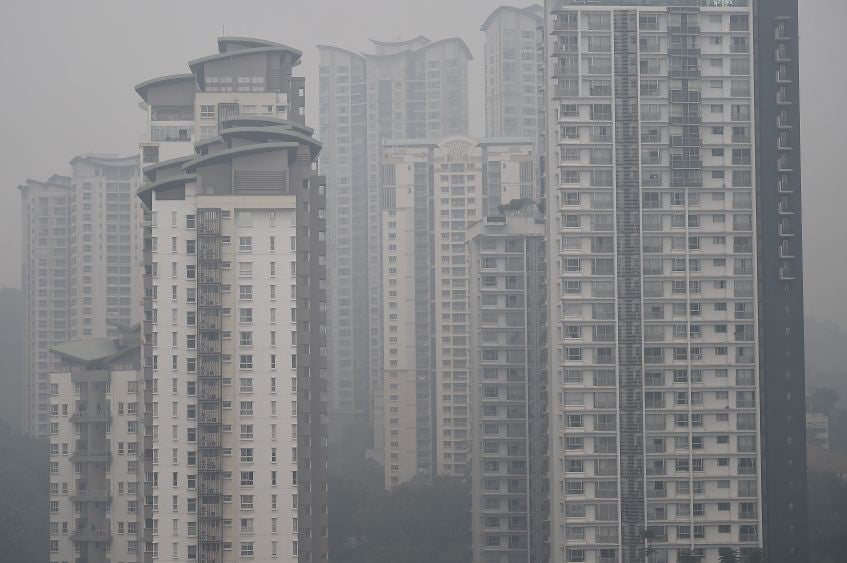Indonesia forest fires: A third of world's wild orangutans at risk in raging peat fires
Smoke has enveloped Indonesia as the fires continue to burn

Your support helps us to tell the story
From reproductive rights to climate change to Big Tech, The Independent is on the ground when the story is developing. Whether it's investigating the financials of Elon Musk's pro-Trump PAC or producing our latest documentary, 'The A Word', which shines a light on the American women fighting for reproductive rights, we know how important it is to parse out the facts from the messaging.
At such a critical moment in US history, we need reporters on the ground. Your donation allows us to keep sending journalists to speak to both sides of the story.
The Independent is trusted by Americans across the entire political spectrum. And unlike many other quality news outlets, we choose not to lock Americans out of our reporting and analysis with paywalls. We believe quality journalism should be available to everyone, paid for by those who can afford it.
Your support makes all the difference.One third of the world's orangutans are at risk from the huge forest fires currently raging in Indonesia's tropical peatland areas.
Many of the fires are started deliberately around this time of year, in order to clear land to make it suitable for palm oil and wood production.
However, this year, the fires have spread from these areas into the nation's rainforests and national parks, threatening the already-small orangutan populations that live in them.
Reseach by the Orangutan Tropical Peatland Project (OuTrop), a conservationist non-profit group who made the prediction, found that previous forest clearances and fires have had devastating impact on the local wildlife.
A recent study for OuTrop, conducted by Columbia University researcher Magan Cattau, found that in one area of the Sabangau Forest, 55 to 60 per cent of the orangutan population had been lost in a single year, after more than one million hectares of peat swamp forest was cleared to make way for rice paddies. Currently, an estimated 7,000 orangutans live in the forest.
OuTrop says that the Sabangau, a national park on the Indonesian island of Borneo, is the home of at least 68 mammal, 167 bird and 218 different tree species, all of whom are at risk from the fires.
Speaking to The Guardian, OuTrop director Mark Harrison said that for the orangutans and other species who live in Indonesia, "the situation is dire and deteriorating by the day."
Even if the forest's animals don't fall victim to flames or habitat destruction, the huge volumes of smoke the fires are creating poses a major threat.

OuTrop research has found that the smoke has an impact on the territorial 'singing' of gibbons, which could have a detrimental effect on their reproduction.
Trees also shed their leaves due to the stress caused by the smoke, damaging them and affecting the animals who live amongst them.
The consequences are dire for humans, too - Guardian reports say that the smoke is thought to be responsible for around 500,000 respiratory infections across Indonesia, with six of the nation's provinces declearing a state of emergency.
Children are being kept home from school and missing out on education due to the dangers of the smoke, and tourism, which provides a livelihood for many Indonesians, has plummeted.
Peat is used as a fuel all over the world, because it lights easily and is difficult to put out - which is why the fires have been raging so strongly.
The wet season in Indonesia will eventually extinguish the fires, but the El Nino weather conditions that are creating high temperatrues could delay the rain.
In the meantime, OuTrop, other experts in Indonesian wildlife, and increasing numbers of Indonesian protesters are calling for a much bigger effort to try and extinguish the fires as soon as possible.
Subscribe to Independent Premium to bookmark this article
Want to bookmark your favourite articles and stories to read or reference later? Start your Independent Premium subscription today.
Join our commenting forum
Join thought-provoking conversations, follow other Independent readers and see their replies
Comments